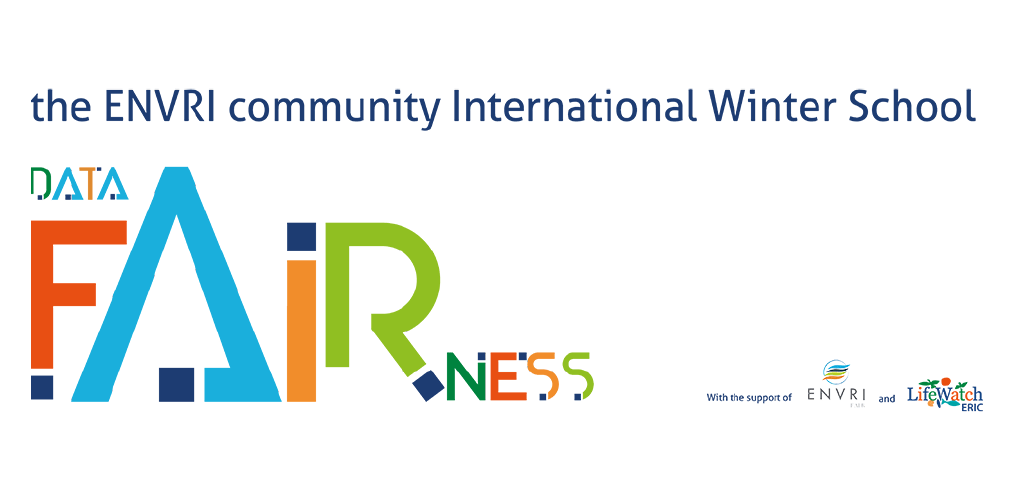
The 2021 ENVRI Community International Winter School from 11–22 January attracted 32 participants from all around the world, predominantly data centre staff, researchers and PhD candidates. Centred on the FAIR principles of data management, the online curriculum covered semantic navigation, Jupyter environments for visualisation and data discovery, resource access tools and cloud computing.
In recognition of the difficulties of distance learning, the organisers structured 40 hours of presence (including preparations) over a two-week period, with scheduled lectures and presentations in the mornings (09-11), followed by associated group and individual work time (11-12). The relevance of the content to the participants’ work ensured a high level of commitment and a great sense of camaraderie developed.
FAIR data are data which meet the principles of findability, accessibility, interoperability and reusability. The presentation of real-life use cases using state-of-the-art technologies demonstrated how essential it is to support end users in making the best use of the data, and to develop good user interfaces and services. The time the participants spent together created a new knowledge-exchange network for these data professionals. The team of teachers behind the “ENVRI-FAIR Resources: Access & Discoverability” Winter School was also international, with up-to-the-minute experience in the application of new technologies to enhance data centre functionality.- Dr Antonio José Sáenz-Albanés (ICT Infrastructure Operations Coordinator at LifeWatch ERIC) and Dr José Maria García-Rodriguez (Associate Professor of Applied Software Engineering at the University of Seville) dealt with how semantics enrich data resources and increase their FINDability by making them machine-actionable;
- Dr Ute Karstens and Dr Claudio Onofrio, respectively researcher and data scientist at Lund University, Sweden, gave a presentation on a fully integrated VRE application at ICOS Carbon Portal, called the atmospheric transport model STILT, running through a full life cycle for an ‘on demand’ model and visualising results as an interactive map;
- Dr Karolina Pantazatou and Ida Storm also work at ICOS Carbon Portal, Lund University, as scientific programmer and project assistant. Their workshop on using GIS-tools and Python-programming and user friendly Jupyter notebooks that process and analyse ICOS data products, had students tweeting in delight: “What a great workspace to document (text, images, links), write code & visualize data -all open and shareable!”;
- ICT Coordinator at the LifeWatch ERIC Service Centre, Nicola Fiore, and Web Portal Officer at the LifeWatch ERIC Service Centre, Lucia Vaira, kicked off the second week with a presentation on the LifeWatch ERIC Metadata Catalogue, explaining the entire process behind the creation and publication of new resources and how to access them; and
- Dr Zhiming Zhao, assistant professor at the University of Amsterdam, used examples from the ENVRIplus and ENVRI-FAIR projects to illustrate how to develop and operate data management services in cloud environments, from running a legacy and native cloud applications, to automating their deployment. Students were able to practice on the cloud infrastructures at EOSC and LifeWatch. One student tweeted a quote: “Users don’t care about the technology you use, but its quality and usefulness”.
The final presentations allowed participants to demonstrate just how much they had learned in professional terms, but there was no sad goodbye at the end. Students had been given the recipe for pasticciotti, the characteristic Lecce pastry, the week before, and everyone cheered as the winner of the ENVRI Chef Challenge was announced. The final tweet? “I highly recommend @ENVRIcomm open training resources!”